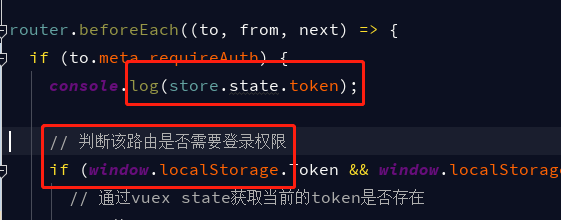可以将文章内容翻译成中文,广告屏蔽插件可能会导致该功能失效(如失效,请关闭广告屏蔽插件后再试):
问题:
I have a private key file (PEM BASE64 encoded). I want to use it else where to decrypt some other data.Using Java i tried to read the file and decode the BASE64 encoded data in it...
This is the code snippet which i tried....
import java.io.*;
import java.nio.ByteBuffer;
import java.security.*;
import java.security.spec.PKCS8EncodedKeySpec;
import com.ibm.crypto.fips.provider.RSAPrivateKey;
import com.ibm.misc.BASE64Decoder;
public class GetPrivateKey {
public static RSAPrivateKey get() throws Exception {
File privateKeyFile = new File("privatekey.key");
byte[] encodedKey = new byte[(int) privateKeyFile.length()];
new FileInputStream(privateKeyFile).read(encodedKey);
ByteBuffer keyBytes = new BASE64Decoder().decodeBufferToByteBuffer(encodedKey.toString());
PKCS8EncodedKeySpec privateKeySpec = new PKCS8EncodedKeySpec(keyBytes.array());
KeyFactory kf = KeyFactory.getInstance("RSA", "IBMJCEFIPS");
RSAPrivateKey pk = (RSAPrivateKey) kf.generatePrivate(privateKeySpec);
return pk;
}
public static void main(String[] args) throws Exception {
PrivateKey privKey = FormatMePlease.get();
System.out.println(privKey.toString());
}
}
I am getting the following errors
Exception in thread "main" java.security.spec.InvalidKeySpecException: Inappropriate key specification: DerInputStream.getLength(): lengthTag=127, too big.
at com.ibm.crypto.fips.provider.RSAKeyFactory.b(Unknown Source)
at com.ibm.crypto.fips.provider.RSAKeyFactory.engineGeneratePrivate(Unknown Source)
at java.security.KeyFactory.generatePrivate(Unknown Source)
at GetPrivateKey.get(GetPrivateKey.java:24)
at GetPrivateKey.main(GetPrivateKey.java:29)
The contents of the file "privatekey.key"
-----BEGIN RSA PRIVATE KEY-----
MIIEuwIBADANBgkqhkiG9w0BAQEFAASCBKUwggShAgEAAoIBAF53wUbKmDHtvfOb8u1HPqEBFNNF
csnOMjIcSEhAwIQMbgrOuQ+vH/YgXuuDJaURS85H8P4UTt6lYOJn+SFnXvS82E7LHJpVrWwQzbh2
QKh13/akPe90DlNTUGEYO7rHaPLqTlld0jkLFSytwqfwqn9yrYpM1ncUOpCciK5j8t8MzO71LJoJ
g24CFxpjIS0tBrJvKzrRNcxWSRDLmu2kNmtsh7yyJouE6XoizVmBmNVltHhFaDMmqjugMQA2CZfL
rxiR1ep8TH8IBvPqysqZI1RIpB/e0engP4/1KLrOt+6gGS0JEDh1kG2fJObl+N4n3sCOtgaz5Uz8
8jpwbmZ3Se8CAwEAAQKCAQAdOsSs2MbavAsIM3qo/GBehO0iqdxooMpbQvECmjZ3JTlvUqNkPPWQ
vFdiW8PsHTvtackhdLsqnNUreKxXL5rr8vqi9qm0/0mXpGNi7gP3m/FeaVdYnfpIwgCe6lag5k6M
yv7PG/6N8+XrWyBdwlOe96bGohvB4Jp2YFjSTM67QONQ8CdmfqokqJ8/3RyrpDvGN3iX3yzBqXGO
jPkoJQv3I4lsYdR0nl4obHHnMSeWCQCYvJoZ7ZOliu/Dd0ksItlodG6s8r/ujkSa8VIhe0fnXTf0
i7lqa55CAByGN4MOR0bAkJwIB7nZzQKurBPcTAYJFFvAc5hgMnWT0XW83TehAoGBALVPGnznScUw
O50OXKI5yhxGf/XDT8g28L8Oc4bctRzI+8YfIFfLJ57uDGuojO/BpqtYmXmgORru0jYR8idEkZrx
gf62czOiJrCWTkBCEMtrNfFHQJQCQrjfbHofp7ODnEHbHFm7zdlbfNnEBBaKXxd2rVv4UTEhgftv
wsHcimbXAoGBAIViWrHWElMeQT0datqlThE/u51mcK4VlV7iRWXVa1/gAP85ZAu44VvvDlkpYVkF
zSRR+lHSOzsubDMN45OBQW6UA3RPg4TCvrTOmhQUeF5XPuSdcD0R2At6pdaLwAKnOtILg13Ha6ym
Igjv8glodvem3hWLmpHIhNBiaXtf8wqpAoGADH5a8OhvKOtd8EChGXyp9LDW+HRw9vbyN/gi9dQX
ltgyoUBb1jDllgoJSRHgRFUvyvbb/ImR5c03JwqtiQ8siWTC9G5WGeS+jcSNt9fVmG7W1L14MbrG
Jj8fFns/7xrOlasnlPdgA+5N+CONtI/sZY2D/KZr0drhPhZBcWJlFxkCgYAn+4SOPEo/6hjKNhA6
vER7fSxDEVsDg+rDh3YgAWpvUdlaqBxqOyAqi600YugQZGHK2lv7vNYOdmrunuIx7BPuDqY+bjtR
R4Mc9bVQAZbXSLXMl7j2RWwKfNhLSJbk9LX4EoVtTgLjvOUE4tAdq9fFgpqdwLwzqPTO9kECP4++
CQKBgH6tO/xcNxG/uXUideluAn3H2KeyyznZMJ7oCvzf26/XpTAMI243OoeftiKVMgxuZ7hjwqfn
/VHXABc4i5gchr9RzSb1hZ/IqFzq2YGmbppg5Ok2cgwalDoDBi21bRf8aDRweL62mO+7aPnCQZ58
j5W72PB8BAr6xg0Oro25O4os
-----END RSA PRIVATE KEY-----
Similar questions have been posted here, but those were of no avail for me.
Almost all of them suggested using Bouncycastle provider which am not willing to use as am supposed to use a provider which is FIPS compliant and am not sure if BC provider is FIPS compliant.
A help in gettin me out of this would be highly appreciated...
Thanks in advance.
回答1:
Parsing PKCS1 (only PKCS8 format works out of the box on Android) key turned out to be a tedious task on Android because of the lack of ASN1 suport, yet solvable if you include Spongy castle jar to read DER Integers.
String privKeyPEM = key.replace(
"-----BEGIN RSA PRIVATE KEY-----\n", "")
.replace("-----END RSA PRIVATE KEY-----", "");
// Base64 decode the data
byte[] encodedPrivateKey = Base64.decode(privKeyPEM, Base64.DEFAULT);
try {
ASN1Sequence primitive = (ASN1Sequence) ASN1Sequence
.fromByteArray(encodedPrivateKey);
Enumeration<?> e = primitive.getObjects();
BigInteger v = ((DERInteger) e.nextElement()).getValue();
int version = v.intValue();
if (version != 0 && version != 1) {
throw new IllegalArgumentException("wrong version for RSA private key");
}
/**
* In fact only modulus and private exponent are in use.
*/
BigInteger modulus = ((DERInteger) e.nextElement()).getValue();
BigInteger publicExponent = ((DERInteger) e.nextElement()).getValue();
BigInteger privateExponent = ((DERInteger) e.nextElement()).getValue();
BigInteger prime1 = ((DERInteger) e.nextElement()).getValue();
BigInteger prime2 = ((DERInteger) e.nextElement()).getValue();
BigInteger exponent1 = ((DERInteger) e.nextElement()).getValue();
BigInteger exponent2 = ((DERInteger) e.nextElement()).getValue();
BigInteger coefficient = ((DERInteger) e.nextElement()).getValue();
RSAPrivateKeySpec spec = new RSAPrivateKeySpec(modulus, privateExponent);
KeyFactory kf = KeyFactory.getInstance("RSA");
PrivateKey pk = kf.generatePrivate(spec);
} catch (IOException e2) {
throw new IllegalStateException();
} catch (NoSuchAlgorithmException e) {
throw new IllegalStateException(e);
} catch (InvalidKeySpecException e) {
throw new IllegalStateException(e);
}
回答2:
You've just published that private key, so now the whole world knows what it is. Hopefully that was just for testing.
EDIT: Others have noted that the openssl text header of the published key, -----BEGIN RSA PRIVATE KEY-----, indicates that it is PKCS#1. However, the actual Base64 contents of the key in question is PKCS#8. Evidently the OP copy and pasted the header and trailer of a PKCS#1 key onto the PKCS#8 key for some unknown reason. The sample code I've provided below works with PKCS#8 private keys.
Here is some code that will create the private key from that data. You'll have to replace the Base64 decoding with your IBM Base64 decoder.
public class RSAToy {
private static final String BEGIN_RSA_PRIVATE_KEY = "-----BEGIN RSA PRIVATE KEY-----\n"
+ "MIIEuwIBADAN ...skipped the rest\n"
// + ...
// + ... skipped the rest
// + ...
+ "-----END RSA PRIVATE KEY-----";
public static void main(String[] args) throws Exception {
// Remove the first and last lines
String privKeyPEM = BEGIN_RSA_PRIVATE_KEY.replace("-----BEGIN RSA PRIVATE KEY-----\n", "");
privKeyPEM = privKeyPEM.replace("-----END RSA PRIVATE KEY-----", "");
System.out.println(privKeyPEM);
// Base64 decode the data
byte [] encoded = Base64.decode(privKeyPEM);
// PKCS8 decode the encoded RSA private key
PKCS8EncodedKeySpec keySpec = new PKCS8EncodedKeySpec(encoded);
KeyFactory kf = KeyFactory.getInstance("RSA");
PrivateKey privKey = kf.generatePrivate(keySpec);
// Display the results
System.out.println(privKey);
}
}
回答3:
This is PKCS#1 format of a private key. Try this code. It doesn't use Bouncy Castle or other third-party crypto providers. Just java.security and sun.security for DER sequece parsing. Also it supports parsing of a private key in PKCS#8 format (PEM file that has a header "-----BEGIN PRIVATE KEY-----").
import sun.security.util.DerInputStream;
import sun.security.util.DerValue;
import java.io.File;
import java.io.IOException;
import java.math.BigInteger;
import java.nio.file.Files;
import java.nio.file.Path;
import java.nio.file.Paths;
import java.security.GeneralSecurityException;
import java.security.KeyFactory;
import java.security.PrivateKey;
import java.security.spec.PKCS8EncodedKeySpec;
import java.security.spec.RSAPrivateCrtKeySpec;
import java.util.Base64;
public static PrivateKey pemFileLoadPrivateKeyPkcs1OrPkcs8Encoded(File pemFileName) throws GeneralSecurityException, IOException {
// PKCS#8 format
final String PEM_PRIVATE_START = "-----BEGIN PRIVATE KEY-----";
final String PEM_PRIVATE_END = "-----END PRIVATE KEY-----";
// PKCS#1 format
final String PEM_RSA_PRIVATE_START = "-----BEGIN RSA PRIVATE KEY-----";
final String PEM_RSA_PRIVATE_END = "-----END RSA PRIVATE KEY-----";
Path path = Paths.get(pemFileName.getAbsolutePath());
String privateKeyPem = new String(Files.readAllBytes(path));
if (privateKeyPem.indexOf(PEM_PRIVATE_START) != -1) { // PKCS#8 format
privateKeyPem = privateKeyPem.replace(PEM_PRIVATE_START, "").replace(PEM_PRIVATE_END, "");
privateKeyPem = privateKeyPem.replaceAll("\\s", "");
byte[] pkcs8EncodedKey = Base64.getDecoder().decode(privateKeyPem);
KeyFactory factory = KeyFactory.getInstance("RSA");
return factory.generatePrivate(new PKCS8EncodedKeySpec(pkcs8EncodedKey));
} else if (privateKeyPem.indexOf(PEM_RSA_PRIVATE_START) != -1) { // PKCS#1 format
privateKeyPem = privateKeyPem.replace(PEM_RSA_PRIVATE_START, "").replace(PEM_RSA_PRIVATE_END, "");
privateKeyPem = privateKeyPem.replaceAll("\\s", "");
DerInputStream derReader = new DerInputStream(Base64.getDecoder().decode(privateKeyPem));
DerValue[] seq = derReader.getSequence(0);
if (seq.length < 9) {
throw new GeneralSecurityException("Could not parse a PKCS1 private key.");
}
// skip version seq[0];
BigInteger modulus = seq[1].getBigInteger();
BigInteger publicExp = seq[2].getBigInteger();
BigInteger privateExp = seq[3].getBigInteger();
BigInteger prime1 = seq[4].getBigInteger();
BigInteger prime2 = seq[5].getBigInteger();
BigInteger exp1 = seq[6].getBigInteger();
BigInteger exp2 = seq[7].getBigInteger();
BigInteger crtCoef = seq[8].getBigInteger();
RSAPrivateCrtKeySpec keySpec = new RSAPrivateCrtKeySpec(modulus, publicExp, privateExp, prime1, prime2, exp1, exp2, crtCoef);
KeyFactory factory = KeyFactory.getInstance("RSA");
return factory.generatePrivate(keySpec);
}
throw new GeneralSecurityException("Not supported format of a private key");
}
回答4:
The problem you'll face is that there's two types of PEM formatted keys: PKCS8 and SSLeay. It doesn't help that OpenSSL seems to use both depending on the command:
The usual openssl genrsa command will generate a SSLeay format PEM. An export from an PKCS12 file with openssl pkcs12 -in file.p12 will create a PKCS8 file.
The latter PKCS8 format can be opened natively in Java using PKCS8EncodedKeySpec. SSLeay formatted keys, on the other hand, can not be opened natively.
To open SSLeay private keys, you can either use BouncyCastle provider as many have done before or Not-Yet-Commons-SSL have borrowed a minimal amount of necessary code from BouncyCastle to support parsing PKCS8 and SSLeay keys in PEM and DER format: http://juliusdavies.ca/commons-ssl/pkcs8.html. (I'm not sure if Not-Yet-Commons-SSL will be FIPS compliant)
Key Format Identification
By inference from the OpenSSL man pages, key headers for two formats are as follows:
PKCS8 Format
Non-encrypted: -----BEGIN PRIVATE KEY-----
Encrypted: -----BEGIN ENCRYPTED PRIVATE KEY-----
SSLeay Format
-----BEGIN RSA PRIVATE KEY-----
(These seem to be in contradiction to other answers but I've tested OpenSSL's output using PKCS8EncodedKeySpec. Only PKCS8 keys, showing ----BEGIN PRIVATE KEY----- work natively)
回答5:
As others have responded, the key you are trying to parse doesn't have the proper PKCS#8 headers which Oracle's PKCS8EncodedKeySpec needs to understand it. If you don't want to convert the key using openssl pkcs8 or parse it using JDK internal APIs you can prepend the PKCS#8 header like this:
static final Base64.Decoder DECODER = Base64.getMimeDecoder();
private static byte[] buildPKCS8Key(File privateKey) throws IOException {
final String s = new String(Files.readAllBytes(privateKey.toPath()));
if (s.contains("--BEGIN PRIVATE KEY--")) {
return DECODER.decode(s.replaceAll("-----\\w+ PRIVATE KEY-----", ""));
}
if (!s.contains("--BEGIN RSA PRIVATE KEY--")) {
throw new RuntimeException("Invalid cert format: "+ s);
}
final byte[] innerKey = DECODER.decode(s.replaceAll("-----\\w+ RSA PRIVATE KEY-----", ""));
final byte[] result = new byte[innerKey.length + 26];
System.arraycopy(DECODER.decode("MIIEvAIBADANBgkqhkiG9w0BAQEFAASCBKY="), 0, result, 0, 26);
System.arraycopy(BigInteger.valueOf(result.length - 4).toByteArray(), 0, result, 2, 2);
System.arraycopy(BigInteger.valueOf(innerKey.length).toByteArray(), 0, result, 24, 2);
System.arraycopy(innerKey, 0, result, 26, innerKey.length);
return result;
}
Once that method is in place you can feed it's output to the PKCS8EncodedKeySpec constructor like this: new PKCS8EncodedKeySpec(buildPKCS8Key(privateKey));
回答6:
Make sure your id_rsa file doesn't have any extension like .txt or .rtf. Rich Text Format adds additional characters to your file and those gets added to byte array. Which eventually causes invalid private key error. Long story short, Copy the file, not content.


